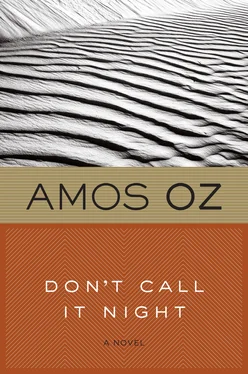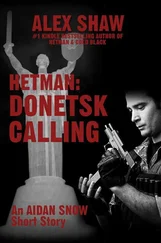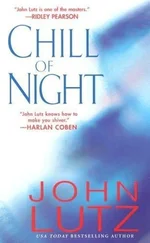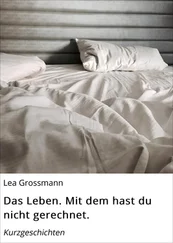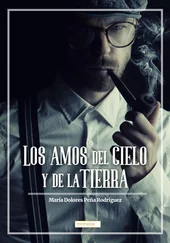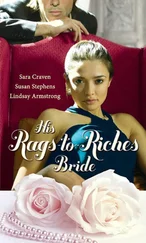For a quarter of an hour or more we stood at the top of Hyena Hill and I hardly felt him take my hand in his and stroke it with his other palm. We saw patches of milky mist slowly creeping and massing in the bottom of the wadi and rolling towards the unlit Jeep. The sorrow of the darkness and the desolation, the man sitting there huddled over the steering wheel of the Jeep in the mist, the policeman at the Ashkelon junction with blood dripping from his nose and dusty sweat rolling down his face and neck, all of it is on me. But why on me? What have I to do with the suffering of strangers I have met only by chance or strangers I haven't met and never shall? And if it has to be me, how can I distil from myself that essential combination of compassion and detachment? How to bring disaster under control like that policeman, not with a panting heart but with a surgeon's hand? "And where are we meant to be shining, and by whom is our shining required?"
Noa.
What?
Come.
Where? I'm here.
Come closer.
Yes. What?
Listen. Last Friday when I was waiting for you at the California Café a funeral procession crossed the square with a stretcher covered in a tallit and yeshiva students and a Charity Saves from Death box. Schatzberg the pharmacist's gaga old man has died. Elijah. Only his name wasn't Elijah. I've forgotten what it was. It doesn't matter. They buried him opposite Bozo's wife and baby, among the pine trees, just past your pupil and his aunt. Shall I go on? You're not too cold?
I don't understand what you're trying to say.
Nothing. Let's go on a trip. Let's get married. Let's decorate the apartment. Or buy a CD player. Just tell me for once what you really want.
Get married for what?
For what. For you. You're not happy.
And then quickly: Actually, I don't know.
I said: Let's go home. I'm a bit chilly. The kid who died, the clinic, the Alharizi house, and the grieving father I don't know how it got into me. Something's going to happen, Theo. Don't you have a feeling too, as if the overture has ended?
We started back. And we chose not to return by way of the Jeep and the wadi but to make a detour past the cemetery at the bottom of the cliff that conceals the forbidden valley. Crickets and darkness and the scent of a distant campfire on the breeze. For a moment I felt a vague desire to turn my back on the sparse lights at the top of the hill, to leave the road, to head much further south towards the real wilderness, to cross a threshold and leave. What was the poet trying to say? That words are a trap? If so, why did he not resort to silence? Suddenly, it was as if a mountain had moved, and I recalled in a flash of illumination the pencil that Immanuel really did receive from me one winter's day during a power cut, when I went to the nurse's room to get some aspirin and the nurse wasn't there, but like a shadow he was sitting there by the bed, looking at me with downcast eyes from behind his feminine eyelashes. And yet he seemed to be sorry for me. For some reason I spoke sharply to him, as though it was my job to discipline him on the spot. I asked him gruffly what precisely he was looking for and who had given him permission to go into the room when the nurse wasn't there. I was aloof and entrenched at that moment and irritable like my father in his wheelchair on the roof for days on end while life passed by in a procession through the lens of his telescope. The boy nodded, almost sadly, as though he could read my mind and was trying to minimize the embarrassment he was causing me, and asked if by any chance I had on me anything to write with. Did he blink? Or was it just my imagination? With rough movements, keeping my back to him, I opened one drawer after another in the white medicine closet until I found the broken tail-end of a pencil. Before I left, or rather fled, I growled at him sarcastically: I'm afraid you'll have to look for a sharpener yourself. He had a talent for literature, Avraham Orvieto said, he might even have been planning to become a writer, whether or not he had any ability to write only you can judge, it was only with you that he found any sense in studying, and he even told me in his letter about the pencil you gave him, and he said he was writing the letter with that very pencil. I could not believe what I was hearing. Like a woman receiving by mistake a declaration of love intended for someone else. If we hadn't decided to come back the long way, if we had come up the path through the wadi to the Jeep with its lights out and discovered that the man had vanished, then I could have sat in the driver's seat, with my head on my arm on the wheel, mourning for the child who had been, and I shall never have another. He plummeted to his own seabed. When we got home we locked the balcony door and made some herbal tea and put on the TV to see if there was anything worth watching, and as it happened there was a programme of excerpts from Artur Rubinstein's last concert before he died. Then I went to have a shower and Theo shut himself up in his room to listen to the news on the World Service from London.
THERE is a God after all, chortled Muki Peleg, in baggy burgundy trousers and a sky-coloured shirt, with a violet silk scarf round his neck, as he opened the door of his new Fiat for Noa. Come and see for yourself what's fallen down from heaven for us, as the carpenter said to his virgin wife. Noa put her straw handbag down by her feet, then changed her mind and put it on her knees. And they set off for the Josephtal district to look for the apartment that had belonged to Immanuel Orvieto's aunt. Ron Arbel from the law firm of Cherniak, Refidim and Arbel had received instructions in a wire from Lagos to clear up the deceased's estate. That morning he had announced on the phone that his client authorized Muki Peleg's agency to sell the aunt's apartment and its contents and to use the money to repay Theo part of the loan he had advanced to the Immanuel Orvieto Memorial Fund for fear that the opportunity to buy the building might be missed.
On the way, he told Noa about a red-headed beautician who he was a hundred percent sure was attracted to him, more than attracted, wild about him, and he asked her advice about which of four possible approaches to adopt so as to get her into his bed. Noa suggested he try scenario number three. Why not? And would the same approach work, for instance, with her? Noa said sure. As he described to her what he termed the tactical scenario, and went on to tell her about eleven thousand dollars he had just put into a new partnership for importing ties from Taiwan, sexy fluorescent ties that glowed in the dark like cat's eyes, she detached herself and tried to imagine what it is like when you are dead: a dark non-being where eyes that are no more see nothing, not even the total darkness because they are no more, and the skin that is no more does not feel the cold and the damp because it, too, is no more. But all she could imagine was at most a feeling of cold and silence in darkness, sensations, and sensations are life, after all. So this too has vanished. Plunging to its own seabed.
Elazara Orvieto's apartment had been shut up and locked since her death. They were met by a faint smell of dusty books and unaired wool. The blinds were closed so they had to switch on the light. In the living room there was a sofa and a coffee table and two wicker chairs, all in the style of the austerity years, and a reproduction of a landscape in Galilee by the painter Rubin. In a blue glass vase a bunch of oleander flowers had already withered and started to disintegrate, and beside it, face down and open, was a book on the last ten days of Jewish Bialystok. A pair of brown glasses lay on top of the book and beside it was an empty cup, also brown. On a shelf were a Bible with commentary, some novels and books of poetry and picture books, among which stood a china figurine of a young pioneer holding a tiny stringed instrument that Noa was unable to identify for certain as a lyre. At the bank she had sat on the left, behind the last window, at the savings schemes counter, a woman in her fifties, efficient, desiccated, freckled, with flat-heeled shoes, her short hair fixed close to her head with a plastic bow. Noa could almost hear the flat tone of voice in that set phrase with which she ended every conversation: "That's one hundred percent okay."
Читать дальше
